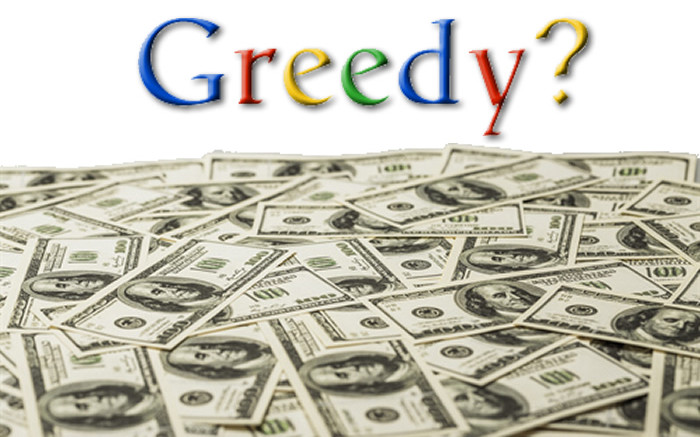Moving on through our business ethics-based analysis of the timeless seven deadly sins, we now come to the sin of “avarice,” otherwise known as greed. As much as I hate to bring this up, I am sure that we all know the cliched-example of Gordon Gecko in Wall Street, lecturing an audience on how “Greed is good.” The truth is, when you really break down the true definition of greed, the character in the movie is wrong. He equates a healthy desire for material rewards—a desire so strong that it drives an individual to overcome countless obstacles and achieve great wealth—with the excessive desire for wealth or possessions.
Of course, for the greedy man, it’s all about the money and the stuff. That man’s purpose ends there, even as the quest for even more riches will never end.
But with most (but certainly not all) people who dream big, work hard and create great wealth, they will be the first to tell you that they were never motivated by the stuff. Rather, it was what wealth afforded them: the opportunity to do good for others. This is the opposite of greed. Indeed, for many of these individuals, it isn’t even a case of generosity…but of stewardship. Yes, the steward knows that he earned the dollar, and legally, it’s his (and it is up to him to decide what to do with it). But he also knows that, despite his efforts, it was first by Divine providence that the dollar came his way—and so he focuses his attention how to best use that dollar to make the world a better place.
This is not just an attitude found among people of faith. Indeed, I’m pleased to say that it’s also found in the culture of many organizations—Google being one of them.
Yes, we all know how Google “wants to own the internet” as part of its evil plot to take over the world. Of course, in many ways, Google does “own” the internet since it runs the two most popular search engines–Google and YouTube.
Of course most of us know that the search engine only scratches the surface of what all Google provides to the world community. These include, but are not limited to:
- A top-rated email service.
- A cloud-storage system starting at 15 gigabytes.
- A complete office productivity suite for word processing, spreadsheets and presentations.
- A video-hosting service with impressive production tools.
- A mobile-operating system.
- A world-wide mapping system, that includes Google Earth.
- A photo-sharing service.
- A blogging platform.
- A publishing platform.
- A real-time translation service from or to virtually any language.
This likely only covers about a quarter of all that Google provides. But the real take away here is the fact that ALL of the above services, and then some, are made available to you and me at no charge. They are absolutely free.
Yes, Google is essentially an advertising media channel. I get that. Just as television networks of yesteryear would produce and broadcast entertainment so they could capture our eyeballs and reap the advertising dollar, so too does Google seek to provide value at so many levels to engage us, and allow their sponsors to pitch their services to us. That’s how they make most of their money.
But I would go so far to say that while many people say that Google wants to own the internet, in fact I would submit that Google wants to save the internet for the people. They challenge web publishers and content producers to make the internet a place for enrichment and a positive experience (it also prohibits the active promotion of pornography on its channels). A few years ago, they instituted new search guidelines, Panda & Penguin, which focused on rewarding quality, value-based content, and penalizing spammy, empty content in their search rankings. More recently, “mobilgeddon,” challenged web publishers to take their sites to responsive, mobile-friendly platforms, or also pay the price in how easily they would be found. Both measures were geared toward fostering a positive internet experience for all of us.
In my opinion, Google has not only made billions by giving stuff away; they have also profited by serving as good stewards of the internet. Thanks to Google and other businesses and entrepreneurs who live by the mantra of building relationships by delivering value, today we have more resources, information and tools available at our fingertips, to help us reach our goals, realize our dreams, and help our friends and neighbors.
Indeed, the marketplace, and the world will always have greedy people. But in my opinion, they are a small minority.


Leave a comment
You must be logged in to post a comment.